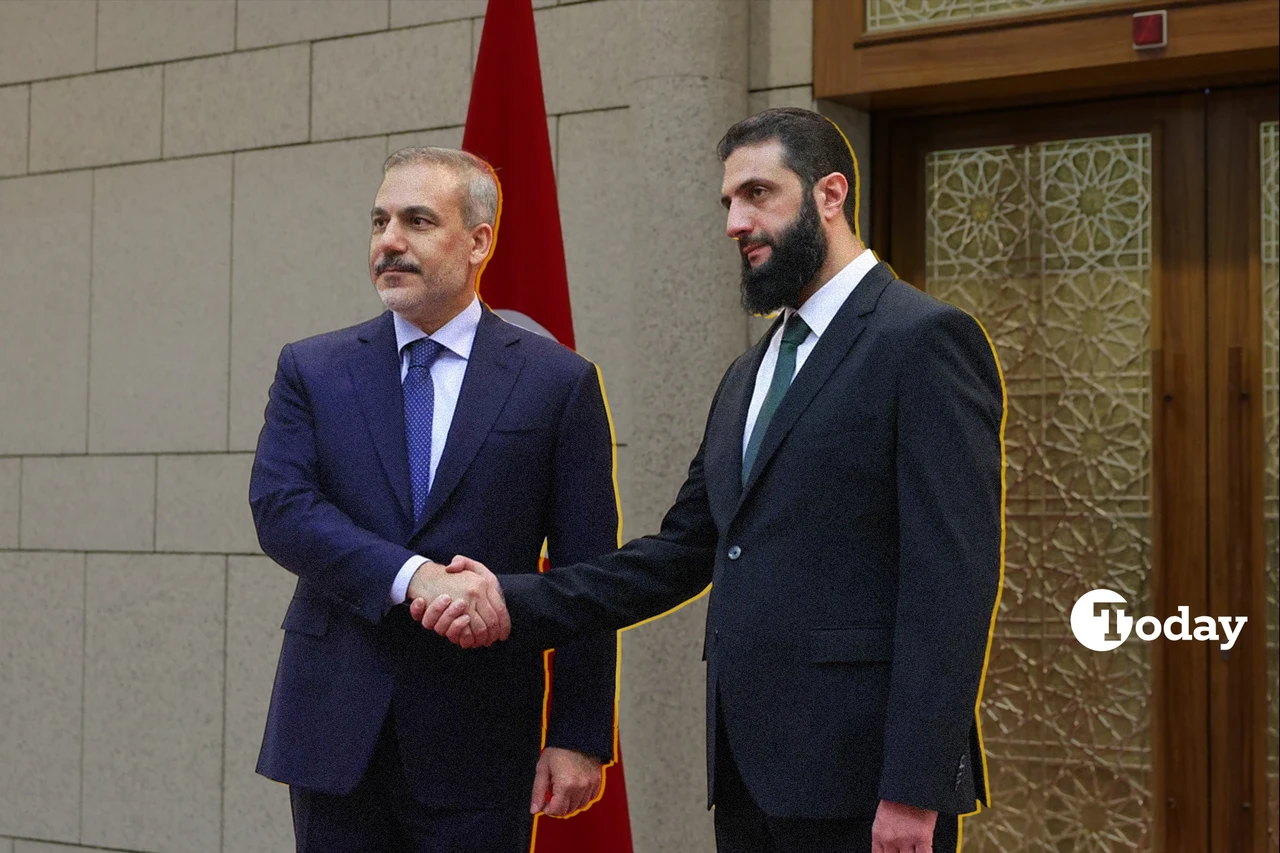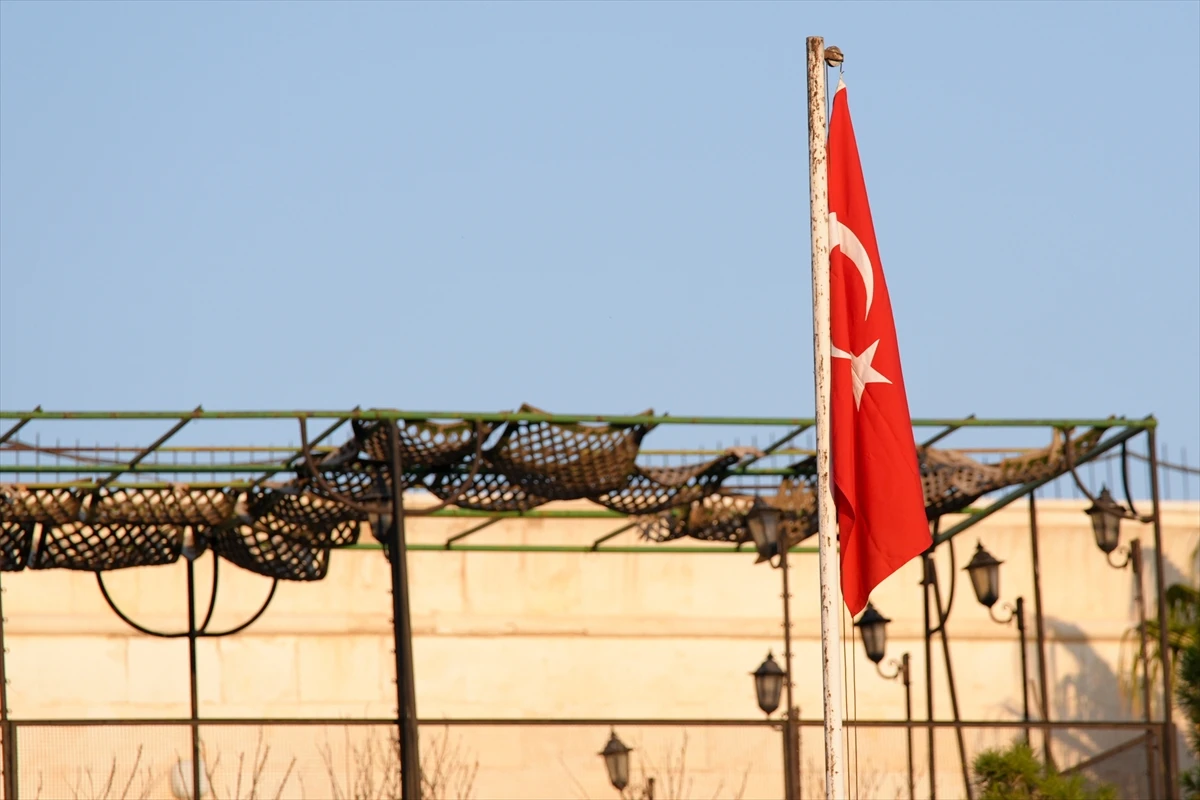Debunking myths around Türkiye’s stance in Syria
 Türkiye's Foreign Minister Hakan Fidan meets with Ahmed al-Shara, leader of Syria's new administration
Türkiye's Foreign Minister Hakan Fidan meets with Ahmed al-Shara, leader of Syria's new administration
The fall of the Assad regime has left a power vacuum in Syria, and Türkiye’s role in filling it has sparked both optimism and caution. In just 20 days, Türkiye has emerged as a key player in shaping Syria’s post-Assad future, yet some international narratives often misunderstand Ankara’s approach.
Recent portrayals frame Türkiye’s role through outdated lenses, either as a neo-Ottoman revivalist force or a Sunni hegemonic power modeled after Iran’s axis of influence.
Both interpretations overlook the pragmatism underpinning Türkiye’s foreign policy, as well as the country’s domestic and foreign policy evolution over the past decade. Analyzing Türkiye’s engagement purely through sectarian or ideological frameworks fails to capture the broader reality of Ankara’s focus on pragmatism and cooperation over ideological dominance, as can be seen in the example of Türkiye offering to negotiate with Assad even in his final days in power. Analysts attempting to liken Türkiye to Iran’s Shia axis might struggle to explain Ankara’s strong presence in Azerbaijan, its outreach to Turkmen groups in Iraq, or even the proximity of its alliances in Syria.
Türkiye’s expanding influence also highlights an emphasis on investment-driven connections across Central Asia rather than reviving Ottoman-era territories, signaling a shift toward economic partnerships.
Realpolitik
The country’s foreign policy has undergone significant transformation over the past decade, moving from a neo-Ottoman approach under former Prime Minister Ahmet Davutoglu to a more flexible and pragmatic strategy. This shift reflects lessons learned from setbacks during the Arab Spring and strained regional relations caused by ideological policies, as well as shifts in Türkiye’s internal political dynamics.
Sinan Ulgen, director of the Istanbul-based think tank EDAM and senior fellow at Carnegie Europe, spoke exclusively to Türkiye Today, explaining why this shift matters:
“It is legitimate to question whether Turkish foreign policy remains ideological, especially given its response to the Arab Spring a decade ago. Back then, initial policies were underpinned by a strong ideological component, which ultimately harmed Türkiye’s relations in the region. Today, however, Ankara’s approach to Syria appears less ideological. The government’s public messaging prioritizes national interests and seeks to address Syria’s governance challenges pragmatically.”
Ulgen added that Türkiye’s focus on stability and economic reconstruction, rather than ideological dominance, underscores this pragmatic approach. However, critical milestones lie ahead, including whether Ankara can sustain this non-ideological focus during Syria’s transition.
“Türkiye must continue its objective assessment of the situation and pressure Syria’s transitional government to adopt inclusive governance. The risk remains that ideological concerns could derail progress, potentially leading to the rise of a political Islam-hegemonic structure that may undermine stability,” the former Turkish diplomat stated.
Some share his concerns. Onur Alp Yilmaz, head of BUPAR Research, in an interview with Türkiye Today, warned that images of President Recep Tayyip Erdogan meeting with Qatari Emir Sheikh Tamim bin Hamad Al Thani, along with scenes of the head of National Intelligence Organization (MIT) Ibrahim Kalin at the Umayyad Mosque, evoke memories of the early Arab Spring-era perceptions surrounding Turkish foreign policy.

Regional reactions
Türkiye’s approach has drawn criticism and concern from regional actors. Gulf states, wary of political Islam, have approached Ankara’s vision with skepticism for years. Turkish Foreign Minister Hakan Fidan remembered to address these tensions: “We do not want Iranian domination in the region, nor do we want Turkish domination. Saudi Arabia, the UAE, Qatar, Türkiye, and others must come together within a culture of cooperation and respect for each other’s borders and sovereignty. Beyond respect, we must commit to protecting one another. Otherwise, external powers will exploit regional polarization and cause long-term, costly conflicts.”
The call for cooperation has reportedly prompted a shift in rhetoric from Gulf leaders who previously supported Assad’s return to the Arab League.
Having faced significant challenges in the past agreements that lacked reciprocity, Türkiye’s moves in Africa, for example, have always started with mutually beneficial partnerships.
Mehmet Sahin, a lawmaker with Türkiye’s ruling AK Party, broke it down for Türkiye Today in the following way: “Türkiye’s only wish in Syria and the Middle East is for stability to be established, ensuring there is no safe haven for terrorist organizations, and for governance that is at peace with its own people. After all, having persistent tensions, instability, and an isolated regime along a 910-kilometer shared border is a loss for Türkiye.”
Sahin further emphasized that Türkiye’s approach does not align with the claims of ideological motives: “Türkiye is neither pursuing a neo-Ottomanist agenda nor aligning itself with a Sunni axis against a Shiite axis. It also has no intention of becoming involved in such divisions. Instead, Türkiye is adopting a pragmatic, realpolitik approach. I believe this perspective offers the most accurate interpretation of its actions.”
He pointed to Türkiye’s broader regional ties as proof, highlighting its strong and evolving relations with Iraq’s Shiite-dominated government as a clear example.
Türkiye’s Syria policy: Beyond labels
Türkiye’s foreign policy defies simplistic categorizations. Seren Selvin Korkmaz, co-director of Istanbul-based think tank IstanPol Institute, explained to Türkiye Today that the government’s approach combines pragmatism and ideology:
“Türkiye’s pursuit of ‘strategic autonomy’ is pragmatic and multifaceted, shaped by shifting global dynamics, border security concerns, mistrust of foreign interference, and economic opportunities.”
Yet it may be early for the comments that attribute a complete victory. “Should the Syrian transition process encounter setbacks, Ankara may face considerable risks in coordinating its alliances and maintaining regional stability. Türkiye’s leadership in Syria’s reconstruction is both an opportunity to reinforce its regional influence and a test of its stabilizing capacity,” Mercator-IPC Fellow Korkmaz remarks.
She also emphasized that Türkiye’s approach blends nationalist and religious narratives without being exclusively ideological. Instead, it reflects a strategy aimed at addressing security threats and leveraging economic opportunities, particularly in infrastructure and reconstruction projects.
Looking ahead
Türkiye’s foreign policy in Syria defies the reductionism of past paradigms. Rather than pursuing sectarian dominance or an imperalist expansion, Ankara’s strategy balances pragmatism with elements of ideological influence to support cooperation and stability of her own interest.
As Syria transitions, Türkiye’s ability to foster inclusive governance will determine whether it cements its role as a regional stabilizer or has no capacity for its perceived ambitions. The outcome will shape not only Syria’s future but also Ankara’s broader role in the Middle East.



